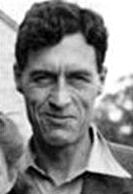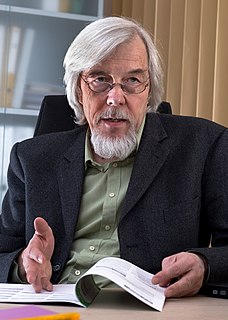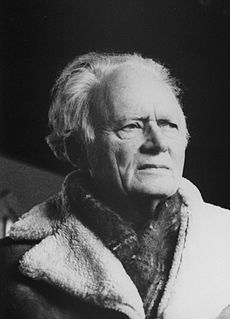A Quote by Patrick Blackett, Baron Blackett
We really try to have only one new particle per paper.
Related Quotes
In my first start-up, I had an initial advertising budget of $5 per day total. That would buy us 100 clicks per day. At $5 per day, marketing people scoffed and said that is too small to matter. But if you think about it, to an engineer, 100 real humans everyday giving your product a try means you can really start improving.
The world of science lives fairly comfortably with paradox. We know that light is a wave, and also that light is a particle. The discoveries made in the infinitely small world of particle physics indicate randomness and chance, and I do not find it any more difficult to live with the paradox of a universe of randomness and chance and a universe of pattern and purpose than I do with light as a wave and light as a particle. Living with contradiction is nothing new to the human being.
We have reached a milestone in our understanding of nature. The discovery of a particle consistent with the Higgs boson opens the way to more detailed studies, requiring larger statistics, which will pin down the new particle's properties, and is likely to shed light on other mysteries of our universe.
I try my jokes onstage. The only way to really find out if something is going to work is to try it on stage, and I try to be careful and bookend something new with a strong bit before and a strong bit afterwards. But it's fun to run on virgin snow. I like that feeling onstage of creating new footprints and not knowing what's going to happen.
At age nine, I got a paper route. Sixty-six papers had to be delivered to sixty-six families every day. I also had to collect thirty cents a week from each customer. I owed the paper twenty cents per customer per week, and got to keep the rest. When I didn't collect, the balance came out of my profit. My average income was six dollars a week.
The importance of group theory was emphasized very recently when some physicists using group theory predicted the existence of a particle that had never been observed before, and described the properties it should have. Later experiments proved that this particle really exists and has those properties.
We see only the script and not the paper on which the script is written. The paper is there, whether the script is on it or not. To those who look upon the script as real, you have to say that it is unreal - an illusion - since it rests upon the paper. The wise person looks upon both paper and script as one.
I could draw ideas. I remember writing a paper for a seminar class. I remember writing a paper about - and this is going to sound really sort of pretentious, but that's where my mind was at the time - how acting and the performing artist can really be like a Bodhisattva, how they can communicate ultimately an idea in a way that can move and shift things. And that was wonderful. I didn't know many classes where I could try and relate the thing that I really loved and wanted to do into an intellectual idea, and that happened to be one of them.


































